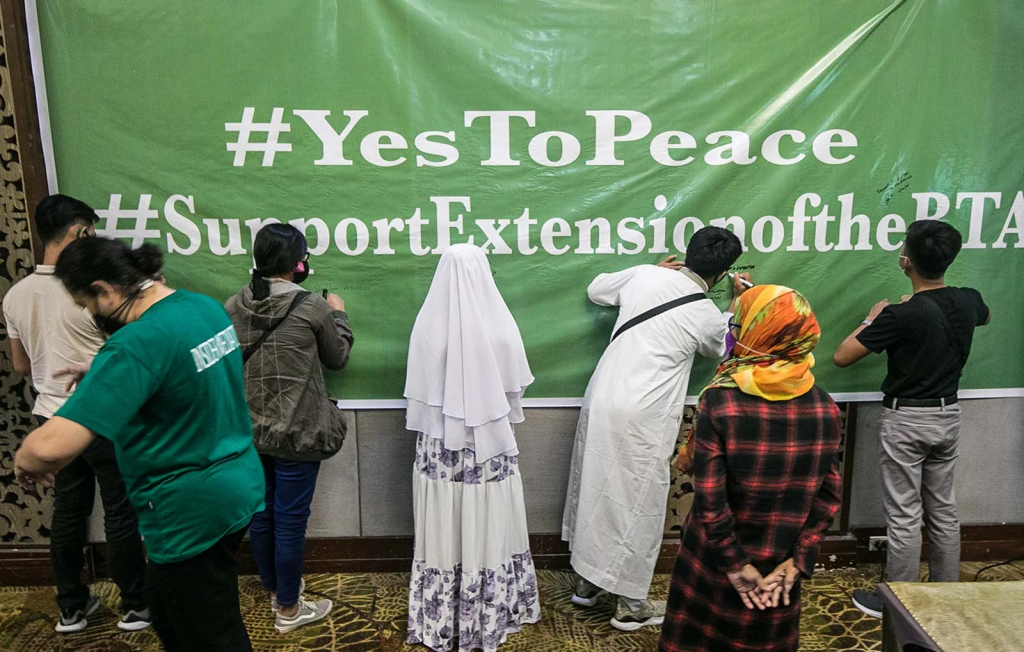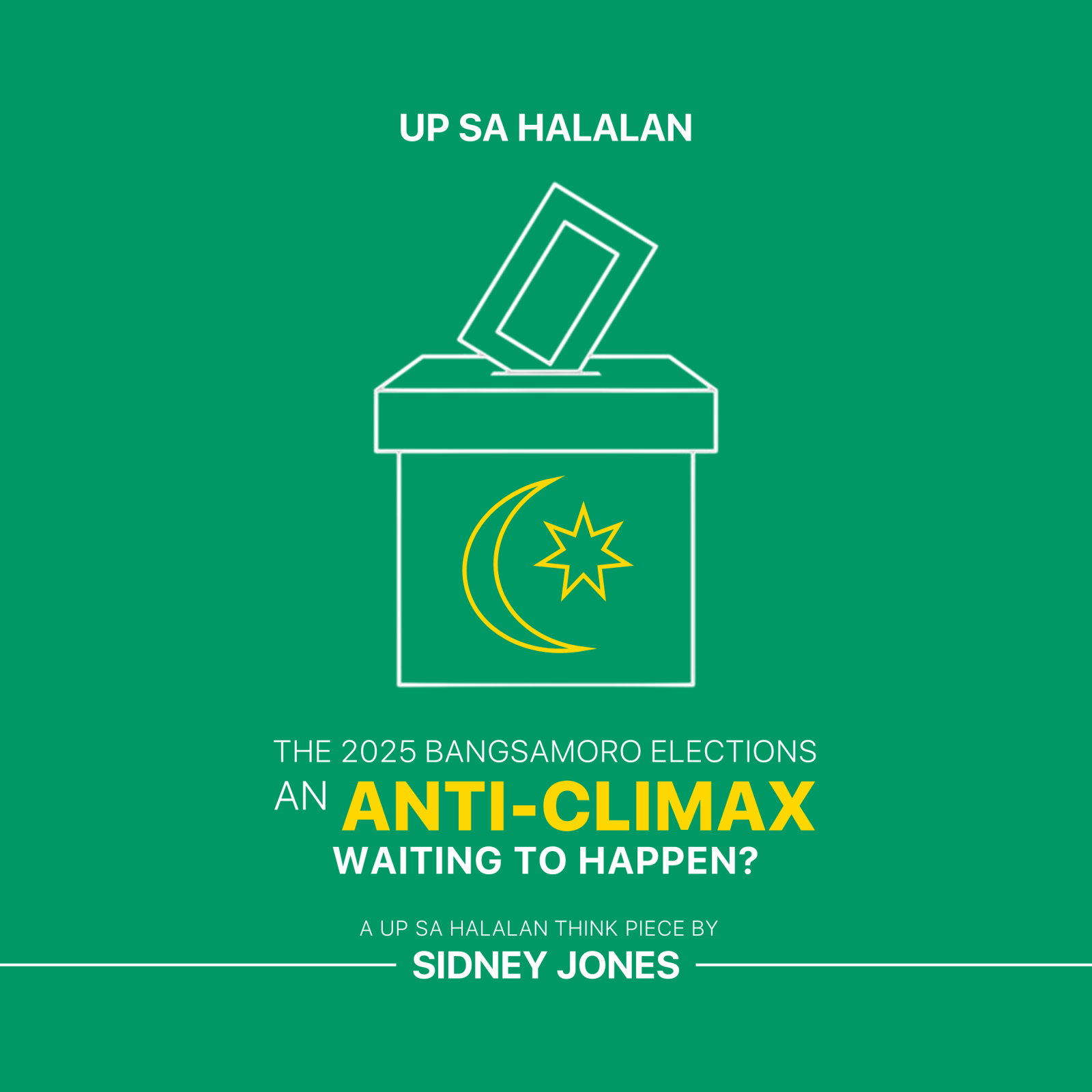The only way the MILF can hold on to the Chief Ministership is to align with a few traditional clan leaders – and these will be the leaders most opposed to any curb on political dynasties or private armed groups.

The May 2025 elections for the Bangsamoro Autonomous Region in Muslim Mindanao (BARMM) parliament will take place in almost exactly one year, and they will be both momentous and anti-climactic. Momentous, because in many ways they will be the culmination of the peace process between the Moro Islamic Liberation Front (MILF) and the government of the Philippines and the definitive end to conflict between them. Anti-climactic, because the likelihood is that they will return BARMM to a government of corrupt family dynasties and political clans, with dreams left in the dust of an egalitarian meritocracy inspired by Islamic concepts of social justice.
What BARMM voters need to keep in mind is that this is not a one-off event – there are many election cycles to come where they will still have a chance to chip away at the entrenched trapos system that some hoped the peace would eliminate.
The BARMM elections will see candidates from regional political parties competing for 80 seats in the Bangsamoro Parliament: 40 representing parties, 32 representing single-member districts and 8 representing sectoral groups. The elected members will choose a Chief Minister, and here is where the jockeying comes in.
The peace agreement in 2014 between the MILF and the government was predicated on the assumption that the MILF would lead the autonomous government. MILF commander, Ahod Balawag Ebrahim aka Al-Haj Murad was named interim Chief Minister when BARMM was established in 2019. The MILF also held a majority of seats in the appointed Bangsamoro Transition Authority, the interim parliament and controlled much of the allocation of the huge block grant from Manila that kept BARMM afloat. However, its party, the United Bangsamoro Justice Party (UBJP), formed in late 2014 and formally registered in early 2015, performed poorly against traditional clans in 2022 and the barangay elections in October 2023 (though the latter were supposed to be non-partisan, the UBJP tried unsuccessfully to field its own slate in some areas). The poor performance was in part because the candidates were weak, and in part because the clans had far better get-out-the-vote machines.
The problem has been compounded for 2025 by a deep rift within the MILF between the two men who were the architects of the peace – interim Chief Minister Murad and chief negotiator Mohagher Iqbal – and the head of the MILF’s armed wing, Abdulraof Macacua aka Sammy Gambar, who is now is simultaneously serving as the acting governor of Maguindanao del Norte, appointed by President Marcos. Murad and Iqbal are respectively chair and vice-chair of UBJP; Sammy is secretary-general.

The rift is over power and succession, not programs and policies: Murad is 75 and cannot live forever. Iqbal and Sammy would both like to succeed him. The tension between them was reflected in the ouster last December by Murad of Minister of Interior and Local Government Naguib Sinarimbo, who is associated with Sammy.
If UBJP would have had problems anyway winning a majority of parliamentary seats on its own in 2025, the rift makes it worse. It means that the only way the MILF can hold on to the Chief Ministership is to align with a few traditional clan leaders – and these will be the leaders most opposed to any curb on political dynasties or private armed groups.
The UBJP already has the support of Governor Jim Hataman-Salliman of Basilan and Gov. Ysmael Sali of Tawi-Tawi, but it needs an alliance with either Gov. Abdulsakur Tan of Sulu or Gov. Mamintal “Bombit” Adiong of Lanao del Sur– and preferably both – to win. The only way they would join an alliance would be to secure promises of patronage that would be the kiss of death for any reform initiatives. It is equally possible, however, that Tan and Adiong would choose to join an alliance with the power couple of Maguindanao, Gov. Mariam Mangudadatu of Maguindanao del Sur and her husband, Teng Mangudadatu, a former governor of Sultan Kudarat province, who campaigned for Marcos in 2022 and has made no secret of his ambitions to be Chief Minister. Sammy could throw his support to the clans or try to cobble together an alternative alliance. A wild card in the mix is Congressman Mujiv Hataman, the estranged brother of Jim, whose party, the Bangsamoro People’s Party, has attracted the support of young professionals and is seen as progressive but which does not have the numbers or influence to lead a coalition on its own.

With all these fault lines, violence is a near certainty, especially given that the supposedly non-partisan village elections in October 2023 were called the “the bloodiest election in the region in the last ten years” by the Council for Climate and Conflict Action Asia, an NGO. According to CCAA data, 17 people were killed, most of them on election day, and 30 injured. Maguindanao and Lanao del Sur will likely be the major areas of violent contestation, both between the two factions of MILF (unless they find a path to reconciliation first) and between UBJP supporters and their opponents among the traditional clans.
Other sources of violence are disgruntled MILF combatants disappointed with the gap between promise and delivery of demobilization packages and the various armed groups, especially in central Mindanao, still nominally committed to Islamic State. They are far weaker than they were at the time of the 2017 Marawi siege but sometimes such groups can be most dangerous when pushed to the wall because they may feel they have nothing to lose. Careful preparation ahead of time might help reduce the violence, including by mapping potentially dangerous areas and ensuring that additional security forces are deployed there well in advance of election day.
Even if the 2025 results may prove anti-climactic, they still will be an important step in a peace process which, even with setbacks and disappointments, looks likely to prove lasting. It will be up to successive generations of BARMM voters to ensure that the quality of that peace steadily improves.
Sidney Jones is the founder of and senior adviser for the Jakarta-based Institute for Policy Analysis of Conflict (IPAC) and an adjunct associate professor in the international relations department at New York University.
